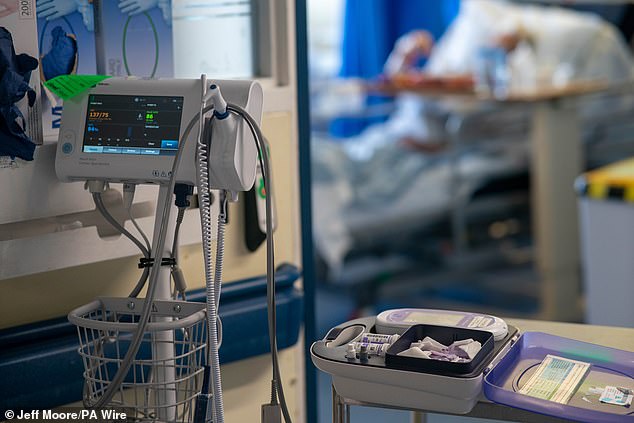More than 750,000 women are currently languishing on NHS waiting lists for gynaecology services, with some enduring “years of suffering” due to delays, a study has revealed.
The Royal College of Obstetricians and Gynaecologists is calling for “urgent action” to address the backlog, which has doubled since the pandemic.
Their analysis shows that gynaecology waiting lists in England have grown faster than those for any other specialty since 2000, with more patients being referred each month than are being seen and treated.
The College says women’s health “has been deprioritised and underfunded for too long” and warns that the resulting delays mean some women have deteriorated to such an extent while waiting for care that they have had to be admitted to hospital in an emergency.
The physical and mental impact of conditions such as prolapse and incontinence can be so devastating that women are forced to leave work while they wait, while others are unable to even leave the house, the RCOG added.
Across the UK, the current waiting list for gynaecology services is 751,531.

The Faculty of Sexual and Reproductive Health has written to Health Secretary Wes Streeting urging him to prioritise sexual and reproductive health “as a matter of urgency”

The Royal College of Obstetricians and Gynaecologists calls for “urgent action” to address the backlog, which has doubled since the pandemic
In England alone, the waiting list for gynaecological care currently stands at almost 600,000 people.
Around half (46 per cent) had been waiting longer than the 18-week target by April this year, and one in 20 (5 per cent) had been waiting more than a year, equivalent to 29,660.
Meanwhile, there were almost 143,000 emergency admissions to gynaecology in March 2021, a figure that rose to almost 170,000 in March 2023, the latest figures available.
RCOG has produced a new data dashboard showing the proportion of long waits across the UK, published in collaboration with LCP Health Analytics.
This report is based on NHS data and states that across the UK the current waiting list for gynaecology services is 751,531.
It also reveals a “postcode lottery” in healthcare, with some patients having to wait weeks longer, on average, compared to others in neighbouring regions.
Jane Plumb, RCOG’s women’s voices lead, said: ‘It is shocking that more than three quarters of a million women and people across the UK are forced to deal with serious, often progressive gynaecological conditions and endure months, sometimes years, of suffering.
‘We’ve heard from thousands of women and people who talk about this: the impact reaches into every aspect of their lives.
‘Some have even been forced to leave work due to the severity of their symptoms.
“Even worse, those living in the most deprived areas face the longest waiting times, which increases inequality. It is time to act on this urgent issue.”
Dr Ranee Thakar, RCOG president, said: ‘Women’s health has long been deprioritised and underfunded, but our new dashboard has revealed, for the first time, the true scale of the crisis in gynaecological care.
‘The women I see at my clinic suffer from serious conditions such as prolapse and incontinence.
“This has a devastating effect on their mental health, their family life and their ability to work or even leave the house.”
She added: “If the new UK Government is to deliver on its election promises to prioritise women’s health and reduce waiting lists, then tackling waiting times in gynaecology must be one of its priorities.
“We urge you to take action in your first 100 days in office to demonstrate that you are serious about change.”
This comes after the College of Sexual and Reproductive Health wrote to Health Secretary Wes Streeting urging him to prioritise sexual and reproductive health “as a matter of urgency”.
The letter, written by the faculty’s president, Dr Janet Barter, and signed by more than 800 doctors, highlights “the shocking health inequalities currently faced by women and girls across the UK”.
He says “too many people are unable to access the critical services they need.”
A Department of Health and Social Care spokesman said: ‘It is unacceptable that so many women are not receiving the gynaecological care they need, when they need it.
‘This government is determined to change that and has committed to prioritising women’s health.
“We have launched an inquiry into the NHS, led by Professor Lord Darzi, to uncover the extent of the problems facing the country’s health service – the first step on the road to NHS recovery.”


